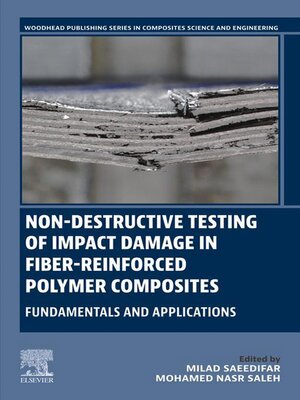Non-destructive Testing of Impact Damage in Fiber-reinforced Polymer Composites
ebook ∣ Fundamentals and Applications · Woodhead Publishing Series in Composites Science and Engineering
By Milad Saeedifar

Sign up to save your library
With an OverDrive account, you can save your favorite libraries for at-a-glance information about availability. Find out more about OverDrive accounts.
Find this title in Libby, the library reading app by OverDrive.



Search for a digital library with this title
Title found at these libraries:
| Library Name | Distance |
|---|---|
| Loading... |
Non-destructive Testing of Impact Damage in Fiber-reinforced Polymer Composites: Fundamentals and Applications provides detailed knowledge on the fundamentals and applications of frequently used nondestructive testing (NDT) techniques utilized to assess impact damage in composite structures.This book starts with an introduction to impact damage in composite structures, each subsequent chapter focuses on evaluating damage using specific NDT methods. Chapters 2–4 concentrate on vision-based NDT methods such as visual inspection, digital image correlation, and digital shearography. Following this, Chapters 5–6 delve into ultrasound-based methods, including acoustic emission and phased-array ultrasonic inspection. Radiation-based methods, micro-CT, and thermography are discussed in Chapters 7 and 8, while Chapters 9 and 10 elucidate microwave inspection and electrical impedance tomography.This book is a useful reference for both academia and industry and covers the fundamentals, practical tips, case studies, and applications, as well as current research trends and future possibilities, for each technique. - Insights into the diverse damage levels in composite materials resulting from low-velocity impact, ranging from micro matrix cracks to severe delamination and fiber breakage
- Covers a broad range of NDT techniques, including recently developed NDT techniques, suitable for detecting impact damage in composite materials
- Serves as a valuable reference for both academia and industry, providing comprehensive coverage of fundamental principles, practical insights, applications, case studies, current research trends, and future prospects for each NDT technique







